Embrace Veganism: A Seamless Lifestyle Transition
Introduction to Veganism
Veganism is more than just a diet; it’s a philosophy and way of living which seeks to exclude—as far as is possible and practicable—all forms of exploitation of, and cruelty to, animals for food, clothing, or any other purpose. Adopting a vegan lifestyle is a commitment to a healthier, more sustainable, and ethical way of life. The transition to veganism can seem daunting at first, but with the right approach and mindset, it can be a seamless process.
Understanding Veganism and Its Benefits
The motivation behind veganism can vary widely. For some, it’s a commitment to animal rights; for others, it’s the health benefits or environmental concerns that drive the transition. Understanding these motivations can make the transition more meaningful and rewarding.
Health Benefits
A well-planned vegan diet can provide all the nutrients your body needs. Many people report improved health markers when they adopt a vegan diet, including lower cholesterol levels, improved blood pressure, and a decreased risk of developing chronic diseases such as heart disease, diabetes, and certain cancers. Vegan diets are typically rich in fruits, vegetables, whole grains, and nuts, which are all foods associated with many health benefits.
Environmental Impact
The environmental benefits of veganism are substantial. The production of plant-based foods generally results in lower greenhouse gas emissions compared to animal-based foods. By choosing a vegan lifestyle, individuals can significantly reduce their carbon footprint and contribute to more sustainable food systems.
Ethical Considerations
Many people are drawn to veganism because of ethical concerns regarding animal welfare. The industrial farming of animals often involves practices that many find inhumane. By avoiding animal products, vegans seek to minimize harm and express compassion towards all living beings.
Transitioning to a Vegan Lifestyle
Transitioning to a vegan lifestyle might seem overwhelming, but breaking it down into manageable steps can make it much easier. Here are some strategies to help you make a seamless transition.
Start Slowly
Gradual changes can be more sustainable than abrupt ones. Begin by slowly eliminating meat, dairy, and eggs from your diet. Start with one meal or one day a week, and gradually increase as you become more comfortable with plant-based eating. This gradual transition allows your taste buds to adapt and helps you learn to prepare a variety of vegan meals.
Educate Yourself
Knowledge is power. Educate yourself about nutrition to ensure you’re getting all necessary nutrients on a vegan diet. For instance, learn about sources of plant-based proteins, such as legumes, tofu, and tempeh, and ensure you get enough vitamin B12, iron, calcium, and omega-3 fatty acids. Numerous resources, including books, documentaries, and online courses, can provide valuable information.
Experiment with New Foods
Embrace the variety of plant-based foods available. Experiment with different cuisines that naturally emphasize plant-based ingredients, such as Indian, Mediterranean, or Middle Eastern food. Try new fruits, vegetables, grains, and legumes to keep your diet diverse and exciting.
Plan Your Meals
Meal planning is crucial to ensure you’re eating a balanced diet. Plan your meals around whole foods and include a variety of ingredients. Batch cooking and preparing meals in advance can save time during the week and help you avoid the temptation of non-vegan options.
Find Vegan Alternatives
Many non-vegan foods have delicious plant-based alternatives. From almond milk to vegan cheese and meat substitutes, these products can make the transition easier. However, it’s important to choose minimally processed alternatives to maintain a healthy diet.
Connect with the Vegan Community
Joining vegan communities, whether online or in-person, can provide support and encouragement. These communities can offer advice, share recipes, and help answer questions you may have during your transition. Social media platforms, forums, and local meet-ups are great places to start.
Overcoming Challenges
Like any lifestyle change, transitioning to veganism can come with challenges. Here are some common obstacles and how to overcome them.
Social Situations
Navigating social situations can be tricky when you’re transitioning to veganism. Communicate your dietary preferences to friends and family in advance, and offer to bring a vegan dish to gatherings. Research restaurants with vegan options when dining out, and don’t be afraid to ask for modifications to menu items.
Nutritional Concerns
Some people worry about meeting their nutritional needs on a vegan diet. Consulting with a nutritionist or dietitian can provide personalized guidance. Regularly monitor your health markers through blood tests to ensure you’re on track.
Cravings
It’s normal to experience cravings for non-vegan foods during the transition. Identify vegan alternatives that satisfy those cravings, and remember your motivations for choosing a vegan lifestyle. Over time, your taste preferences will likely adjust.
Maintaining a Vegan Lifestyle
Once you’ve made the transition to veganism, maintaining this lifestyle involves continuous learning and adaptation.
Stay Informed
The vegan landscape is constantly evolving with new products, recipes, and research. Stay informed by following vegan blogs, reading relevant literature, and keeping up with the latest news in veganism.
Embrace Flexibility
While it’s important to adhere to your vegan principles, practicing flexibility can be beneficial. If you accidentally consume a non-vegan product, don’t be too hard on yourself. Learn from the experience and use it to reinforce your commitment.
Advocate and Educate
Share your vegan journey with others to advocate for the lifestyle. Educate friends and family about the benefits of veganism, and be prepared to answer questions and address misconceptions. Your experience can inspire others to consider a plant-based lifestyle.
Conclusion
Embracing veganism is a journey of mindful choices and positive impact. By understanding the benefits, planning your transition, and overcoming challenges, you can seamlessly integrate veganism into your life. This lifestyle change not only benefits your health but also contributes to a more sustainable and compassionate world. As you embark on this journey, remember that every small step you take towards veganism is a step towards a better future for yourself and the planet.

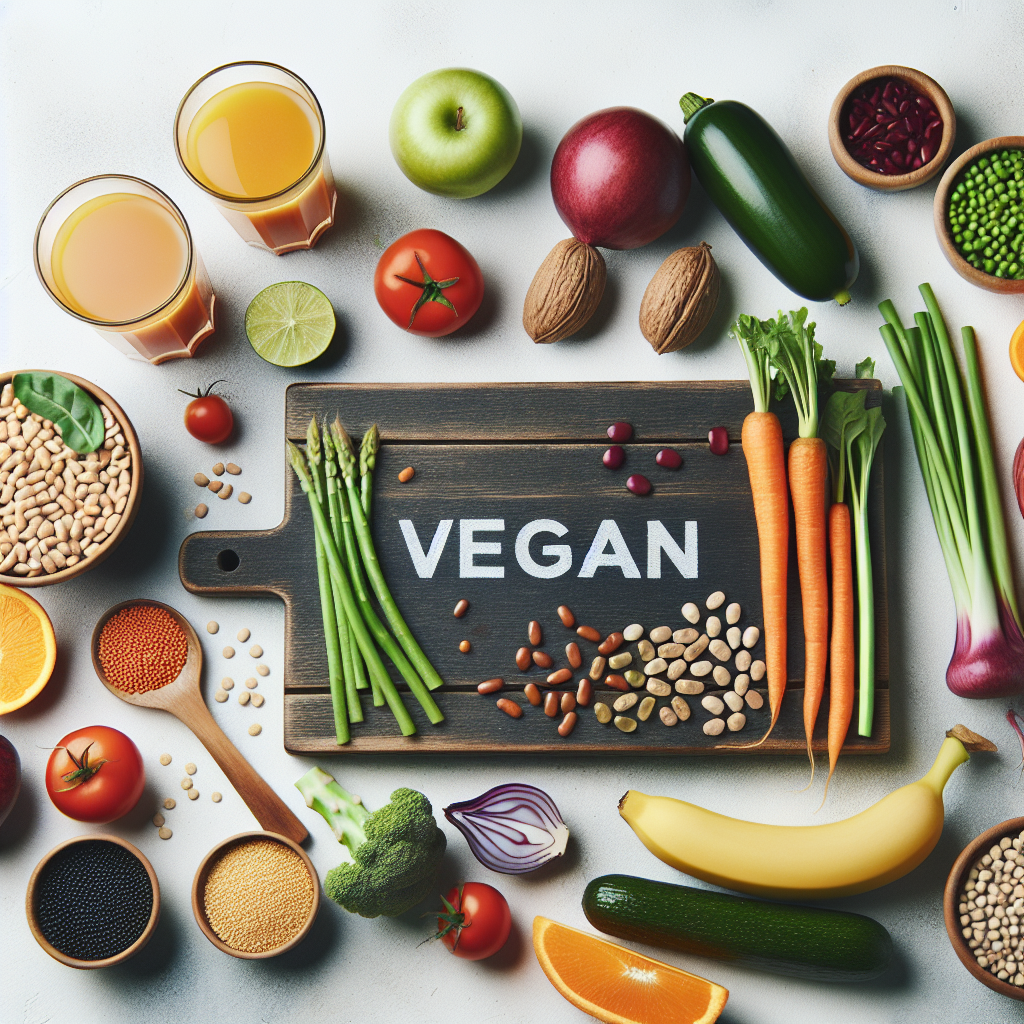


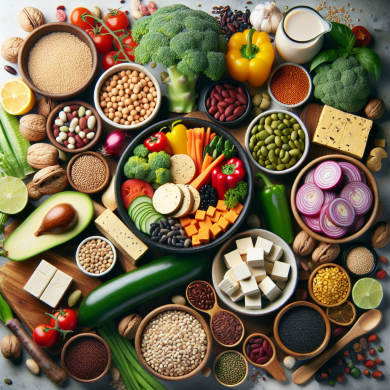

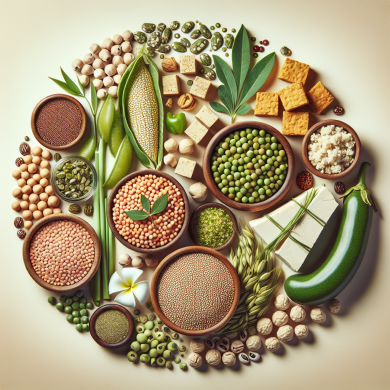
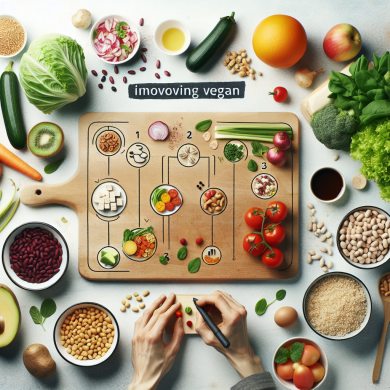
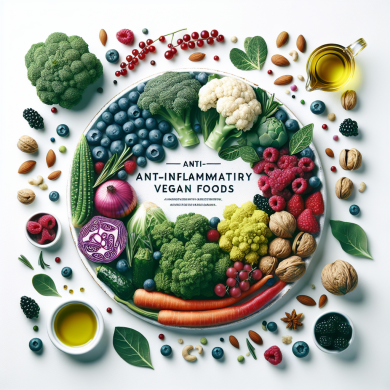






Add comment